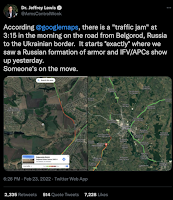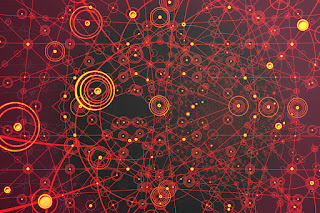A rip current is a strong flow of water that pulls floating objects out to sea before dissipating in deeper water. Swimmers who are caught in a rip current often panic and exhaust themselves by trying to swim directly against the flow of water, rather than with it. The future is not unlike a rip current. If you fight against the future you will exhaust yourself and ultimately fail.
Change is uncomfortable, and time brings change. Many people have a deep resentment against time and all the changes it brings. These people often look at the future with dread. All they can see coming is a rising tsunami of change and discomfort - physical, mental and emotional. They point to today's problems as examples of what yesterday's future brought, and they don't want any more of it. Often, people don't realize that the seeds of the changes we see today were planted long ago. It is the past that brought us to today - for good and for bad.
It is the season of planning. We are all busy looking ahead and planning for 2022. The reason I get so excited about the future is we can influence it for good. We can improve upon the past. It's our opportunity for a next version - a version 2.0. We can't change the past, but the future is our's. What is our life's purpose anyhow, if it is not to build a better tomorrow?
Innovating, inventing, planning, creating, designing, developing, growing, starting, birthing and building are all future oriented terms. They point to what is to come. The future is a new place. Let's bring forward from the past all that is good and improve on the bad. Let's all work together for good so the future can be our gift to generations to come.
************************************************************************
Kevin Benedict
Partner | Futurist at TCS
***Full Disclosure: These are my personal opinions. No company is silly enough to claim them. I work with and have worked with many of the companies mentioned in my articles.













